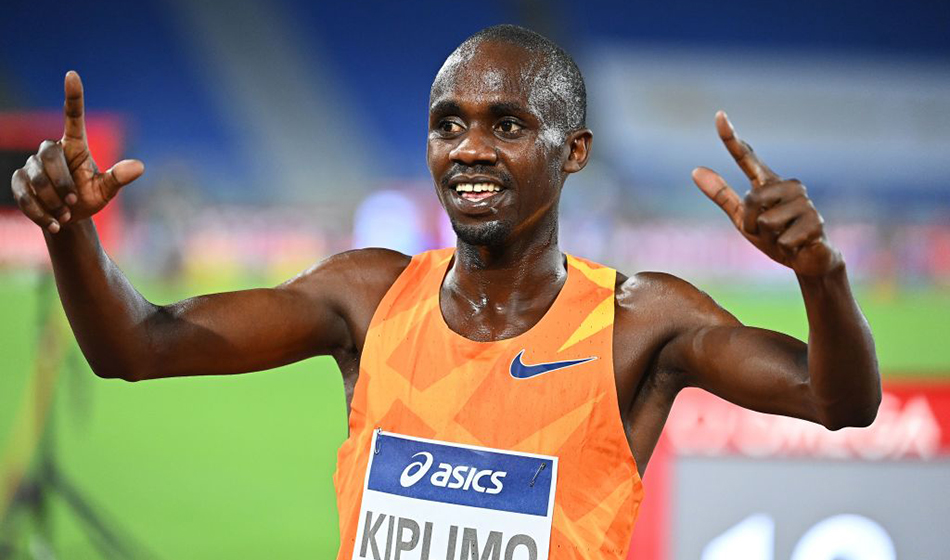World indoor 3000 metres champion Josh Kerr was not holding back when asked about the $US40,000 prizemoney he earned for his victory.
“It seems crazy,” Kerr responded, comparing the 40,000 to money on offer in other sports and against the appearance fees paid to some of the world indoor gold medallists – Noah Lyles, Grant Holloway and Femke Bol three he name-checked – to compete at other meetings (guess Kerr’s implying it’s less?).
At least a world indoor gold medallist earns the same monetary reward in 2024 as they did at the turn of the millenium. What then to say of the fact that prizemoney for the winners at world cross-country has gone down in the same period, from US$40,000 to 30,000?
“It seems crazier,” perhaps?
 Yes, it does. And with the cross-country championships having shed the ill-fated short race in that time and gone from an annual to every-two-years schedule over the same period, there is now just one shot at that money every other year, rather than two every year or four over each two years. Even if the depth and breadth of world cross-country has dropped off, it’s still as competitive as ever at the sharp end.
Yes, it does. And with the cross-country championships having shed the ill-fated short race in that time and gone from an annual to every-two-years schedule over the same period, there is now just one shot at that money every other year, rather than two every year or four over each two years. Even if the depth and breadth of world cross-country has dropped off, it’s still as competitive as ever at the sharp end.
Anyway, world cross-country often seems more than a little crazy, whether back in earlier, more glorious times when you could thrill to the sight a of massed fields taking off at a full-tilt sprint and running the first 1000 metres as if in a 1500, or racing past bemused herds of camels in Marrakech in 1998, across a sea of mud in Ostend in 2001 or in the aftermath of a tycoon in Fukuoka in 2006.

Or a day combining a bit of everything, as in Bathurst last year. A day that began in brilliant sunshine and ended with an awesome thunderstorm which bubbled and brewed as the senior men’s field ran, breaking with driving winds and rain moments after Jacob Kiplimo crossed the finish line.
 Yet still cross-country endures. In ruddy health if not quite thriving. Perhaps its appeal lies at least partly in the fact that it is accessible to all. Most kids all over the world have experienced a cross-country race by the time they have left primary school, even if the course is just one lap of the school oval. Just bring yourself and run, jog or even walk.
Yet still cross-country endures. In ruddy health if not quite thriving. Perhaps its appeal lies at least partly in the fact that it is accessible to all. Most kids all over the world have experienced a cross-country race by the time they have left primary school, even if the course is just one lap of the school oval. Just bring yourself and run, jog or even walk.
By the time many of you read this, this year’s world cross-country may have been run and won. The concertina impact of Covid has meant the event has – temporarily – returned to its annual schedule (enjoy while you can, the next edition is set down for Florida in 2026). In keeping with recent times, however, there has been a delay. WXC2024 was awarded to Medulin and Pula in Croatia in early February, but a late withdrawal and change of host saw it switched to capital of Serbia, Belgrade, on the last weekend of March.

And just as flirting with the southern hemisphere summer saw Bathurst23 contested in temperatures approaching 40deg.C, so flirting with the northern hemisphere spring by pushing Belgrade24 back to late March has been ‘rewarded’ with unseasonal warm weather. Temperatures for race weekend are forecast to be around 30 degrees Celsius.
Not quite baking in Bathurst, maybe, but simmering in Serbia nonetheless. The good news is that it seems to have had little impact on European participation – unless the expectation was that it would see an increase. It was bugger-all in Bathurst and not many more are on the entry lists for Belgrade even if it is good to see traditional cross-country supporter (and one-time power) France back.

It was the same in Aarhus in 2019 when there had been the same hope that a European host might see a recovery in European representation. That theory, unlike the weekend’s champions, seems to have run out of legs.
From our part of the world, it is pleasing to see New Zealand back in numbers. Just one senior male, but full teams for senior women and men’s and women’s U20. Perhaps, in true Anzac spirit, we could lend the Kiwis a couple of senior men, they could reciprocate with a couple of senior women, and we could both have full representation.
Hopefully, if the word ‘crazy’ is applied to anything after the weekend it will be to crazy-brave and crazy-exciting races. My fearless prediction is that runners from East African nations will do well. My fervent hope is that the Australians will do as well as in Bathurst. The warm weather shouldn’t deter those coming from summer.
After this ‘extra’ world cross-country, it will be two years before the next. And Florida will stage its edition of the race in early January – the third significant date change for the event in three editions.





